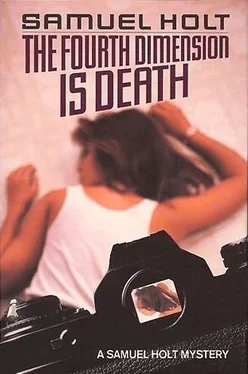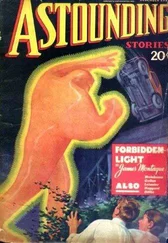When we were finished, when I could think of nothing more to ask and she could think of nothing more to volunteer, when I’d given her Terry Young’s phone number in Brooklyn and she’d promised to call if anything else useful occurred to her, she sat back and looked at me and said, “I don’t know if it’s because you don’t look like Dale this way, or what it is, but it’s easier to talk to you now.”
“Time,” I suggested.
“More than that,” she said. “I’d like to take a look at you without all that stuff on, so I could see what difference it makes.”
Grinning, I said, “Sorry. I can’t unwig in here.”
“Well,” she said, slowly, as though she’d just now thought of the idea and were still considering whether or not it was a good one, “you could always come to my place. It isn’t far. We could talk some more, and you could let me see you au naturel.”
Ah. I hadn’t seen that coming. In the early days of my celebrity, these offers had been made rather often, and at first I’d accepted as many of them as I possibly could. Soon, though, I discovered two dismaying things: The women I most preferred to be around were the ones who didn’t make any offers; and I wasn’t really having that good a time getting myself listed on everybody’s scorecard. Now that I’m no longer accepting offers, they aren’t made so frequently — I guess we have unconscious ways to signal one another about such things — but when they do appear the problem has become how to turn them down without coming across as smug or a prig, and without embarrassing anybody or hurting anybody’s feelings.
In this instance, though, there was a very simple reason to say no. “Julie,” I said, “sometime in the middle of the night, you’d turn over and call me Dale, and neither one of us would get over it.”
She studied me. “I don’t think so,” she said, slowly, thoughtfully, “but maybe you’re right. Are you done here?”
“Oh, I think so,” I said.
The reason the hotel’s sign wouldn’t be flashing all night in my window was that it was broken; which was all right with me. No one was on the desk when I arrived, and no one appeared to have been in my room while I was gone; which is to say, it was still the same mess my friends and I had left it. I reordered the place as much as necessary, wedged a chair under the doorknob to discourage visitors, took a long hot (though rusty) shower, and slept easily. In the morning, I drove the Plymouth over the causeway and through Miami out to the airport, where I left it at a meter and took my flight to New York, arriving in midafternoon.
Terry Young recognized me instantly as I came down the umbilical and into the terminal with the rest of the passengers. Approaching, grinning, hand out to shaken, he said, “Who are you supposed to be? The teenage wolfman?”
“I’m supposed,” I told him, “to be nobody you know.”
“Or want to. Got any more luggage?”
“No, just what I’m carrying,” I said. “And I’ve just learned the stews aren’t as easygoing about carry-on luggage in coach.”
“Oh, my God,” he said, rearing back to gaze upon me in mock awe. “It isn’t teenage wolfman, it’s The Prince And The Pauper.”
Terry always makes me laugh. He’s a burly Irishman with a fine brain distorted by years of observing the City of New York for the daily press. Rather than be embittered by his experiences, though, he’s managed mostly to be amused by them, which has probably saved his sanity.
Now, in Terry’s station wagon, salted with evidences of his children — everything from candy bar wrappers on the floor to a basketball rolling around the storage compartment — he drove me across Queens and Brooklyn toward his house and filled me in on the situation here in re the Dale Wormley murder investigation. Which didn’t take long, because in effect there wasn’t any Dale Wormley murder investigation. Nothing had changed since I’d talked with him from California, and nothing was likely to change. At least not on the official side.
“But it’s all different now, right?” he asked me, taking his eyes from the Belt Parkway long enough to give me an ironic look. “Here comes Packard for real.”
“I know, Terry, I know. I feel stupid about it, but what else is there? That lawsuit isn’t going away.”
“I realize that, Sam,” he said, relenting. “I was just giving your leg a little tweak, that’s all.”
Terry and his wife Gretchen live in the Midwood section of Brooklyn, just east of Flatbush Avenue. A few blocks away are big chunky apartment buildings in beige brick, but the area around the Youngs is mostly, like their own place, sprawling one-family houses on large lots. When we arrived, Terry had to wait while I got out of the car to move a tricycle before he could park in the driveway, and then we went inside for a warm greeting from Gretchen, a gemütlich German girl Terry wooed and won when her job with Interpol brought her temporarily to New York several years ago. These days, she’s the total hausfrau with her three kids, inexorably putting on a few pounds a year — though hardly anything to complain about as yet — and only rarely expressing a kind of wistfulness for the free soul she’d been before Terry Young came into her life.
She was at her most cheerful now, laughing uproariously over my disguise, insisting I let her try on my moustache — ever since Dietrich, German women have had this unhealthy interest in suggestive crossdressing — and then showing me the guest bedroom, where I’d stay. I’d seen that room before, and it was the attic to end all attics, crammed to the ceiling with last year’s toys and last decade’s clothes; now, it was clean, neat, spotless. “Gretchen,” I said, “where’d you put all the stuff?”
“It was time some things were thrown out,” she said, a glint in her eye hinting at a fierce family battle that had come out her way. With the moustache, it made her look sexy in a challenging fashion. I told her so, and she said, “Kiss me, my fool.”
So I did. I’d never kissed a woman wearing a moustache before, and the tickle made me laugh. Which made Gretchen laugh, too. “You’ve spoiled all my illusions,” she said, and put the moustache on my nose, and left me alone in the cleaned-up room to change back into my original self.
I was staying with the Youngs because at either of my normal places in New York — at home on 10th Street or with Anita in her apartment upstairs over Vitto Impero — there was too much likelihood that my presence would be noted. Gretchen had called Anita yesterday, at my request, to tell her what was going on, and since this was Sunday, a moderately slow night at the restaurant, Anita would be coming out to have dinner with us this evening, bringing along a suitcase of clothing for me from 10th Street.
It was a good evening, all in all, spent mostly on subjects other than Dale Wormley, though Terry did insist I put on my scoundrel drag for Anita’s amusement. I did, Anita agreed she probably wouldn’t serve me if I walked into the restaurant looking like that, I took it off, and that was the end of it. Anita decided to stay over, happily, and in the morning I put my gear back on and we drove into the city together with Terry, who at last raised the main subject, saying, as we neared the Manhattan Bridge, “Anita? What do you think of Packard Rides Again?”
“I think it’s good,” she said, surprising me.
I said, “You do? How come?”
“Do your own dirty work,” she said, and shrugged. “Don’t leave it to agents and lawyers and all those people all the time.”
“But— They’re trained in their jobs.”
“So are you,” she told me. “You’re a trained cop, to begin with. And you’re a trained observer. And you’ve been around all this mystery solution stuff for years.”
Читать дальше












